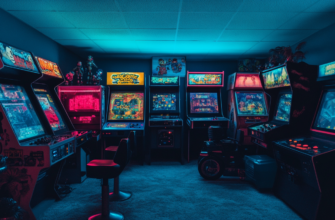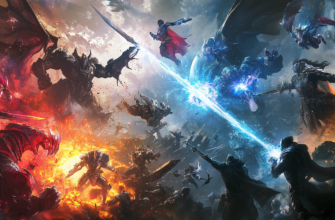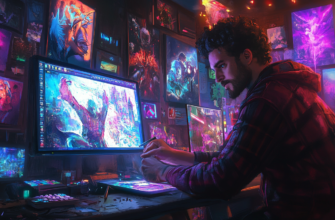- Why are some games banned in different countries? Explore the reasons behind prohibited games
- Common reasons games get banned
- Notable examples of banned games and their reasons
- 1. GTA V – Grand Theft Auto in Australia
- 2. Call of Duty: Modern Warfare 2 – “No Russian” mission controversy
- 3. Manhunt 2 – Violence overload in the UK
- 4. Football Manager 2005 – Political sensitivities in China
- 5. Pokémon GO – Religious concerns in Saudi Arabia
- Why countries implement bans on certain games
- Practical tips for dealing with banned games
- Conclusion: The future of game regulations
Why are some games banned in different countries? Explore the reasons behind prohibited games
Hey, fellow gamers! You ever get hyped to play a new game, only to find out it’s banned in some countries? Yeah, me too. And we’re not just talking about highly controversial, over-the-top violent games here. Nope, sometimes it’s even seemingly harmless titles that get the axe in certain parts of the world. I know! Crazy, right? Why do different countries put certain games on a prohibited list? Let’s dive in and break it down, so we can understand why that epic game you’re itching to play might be banned where you live.
From violence to political sensitivity, a bunch of reasons can get a game banned. You might be surprised to learn that something as simple as cultural differences can put a game on the ban hammer’s list. And hey, the internet doesn’t stop at borders, but a game’s availability certainly can. Let’s explore why some games get blocked in various countries across the globe, and what specific reasons lead to these bans.
Common reasons games get banned
Different countries ban games for all sorts of reasons. If you look at enough examples, you’ll see it usually comes down to a handful of justifications. Of course, these reasons vary depending on the political, cultural, and legal boundaries of each country. Want to know the most common triggers that get games pulled off the shelves? Here are some of the big reasons:
- Depiction of extreme violence: Some countries are totally fine with violent content, while others may not allow you to play anything that shows blood, gore, or dismemberment.
- Political and ideological conflicts: Games that portray sensitive political or ideological themes can clash with government policies or national narratives, leading to bans.
- Cultural beliefs: Games that disrespect, mock, or dismiss certain cultural or religious beliefs can often face heated resistance and, eventually, get banned.
- Drug and alcohol use: Depictions of drug use or excessive partying can be problematic in some countries that have strict rules around substances.
- Sexual content or nudity: This one’s a biggie! Games with even mild sexual innuendos get banned, particularly in more conservative countries.
- Gambling elements: Some governments don’t like their citizens gambling, even in video games, so anything with gambling mechanics like loot boxes may be prohibited.
Now that you have an idea of what might set off the alarms, let’s take a look at a few specific games that have been banned—and the reasons behind their prohibitions. Check it out, you’re about to open your mind to a whole new world of gaming politics.
Notable examples of banned games and their reasons
Bans happen more frequently than you’d think, and some might surprise you more than others. Below are some games that haven’t been welcomed with open arms in certain regions.
1. GTA V – Grand Theft Auto in Australia
Grand Theft Auto V, the cultural juggernaut, has been shelved in some places due to obscene levels of violence, particularly against women. In Australia, there was a movement to ban physical sales of GTA V in major retailers after complaints centered around domestic violence and graphic content. Australia is no stranger to game bans, as their rating system is super strict. The game’s portrayal of intense violence and adult themes pushed it past their boundaries.
2. Call of Duty: Modern Warfare 2 – “No Russian” mission controversy
Most gamers know the infamous “No Russian” mission in Modern Warfare 2, where players can participate in a brutal massacre at an airport. This mission stirred intense controversy all around the world, especially in Russia, where the context made things even more politically sensitive. The mission was seen as condoning violence and terrorism, which led to the removal or re-editing of the mission in several regions.
3. Manhunt 2 – Violence overload in the UK
Manhunt 2 is all about extreme violence—for a lot of people, it went well beyond what a video game should show. The UK hit it with an outright ban due to the graphic nature of the execution-style killings. The game was deemed too harsh for public consumption, and no rating scale could cover it, leading to its removal from the shelves. Even after cuts were made to scale down the intensity of the violence, the ban wasn’t lifted immediately.
4. Football Manager 2005 – Political sensitivities in China
You might be thinking, “Wait, a football game?” Yep, Football Manager 2005—though not violent or explicit—was banned in China when it listed Taiwan, Tibet, and Hong Kong as independent countries. That little detail was enough to rub the Chinese government the wrong way, leading to an immediate ban in the country. This game shows how bans aren’t just about violent content, but also political representations that conflict with state sensitivities.
5. Pokémon GO – Religious concerns in Saudi Arabia
Poor Pikachu! You wouldn’t think the adorable creatures of Pokémon GO could get banned, but it found itself on authorities’ hit list in Saudi Arabia. Why? The game was blamed for promoting gambling (due to its reward mechanics) and it also faced accusations of conflicting with Islamic beliefs. Pokémon GO also raised concerns over safety due to reports of players wandering into dangerous areas or government properties while hunting for elusive creatures.
Why countries implement bans on certain games
So, you’ve seen some of the games that were banned and why it happened. But this doesn’t mean every country functions the same when it comes to prohibiting video games. Every region has its own regulatory authorities that judge whether a game abides by local content laws. But what does that process look like? How do governments decide if a game should be blocked? Here’s a breakdown of how it works in various regions:
Australia: Known for its strict classification board, Australia has banned or modified several games for excessive violence, drug use, and sexual content. The Australian Classification Board (ACB) rates games, but if the content is too extreme, it will refuse classification—which can essentially be a ban.
Germany: Germany has regulations around Nazi symbols, hate speech, and extreme violence. Games like Wolfenstein II had to be heavily censored for their portrayal of Nazi-era insignia and motifs. However, these laws have been slightly relaxed in recent years, allowing historical context.
Saudi Arabia: With one of the most conservative stances on media, Saudi Arabia often bans games that conflict with its moral, religious, or cultural views. This includes games with high levels of violence, sexual content, and depictions of homosexuality.
China: China has a centralized government-approved rating system and often bans games that portray politically sensitive themes or contain violence and excessive gore. Chinese censorship laws are also strict on games with gambling elements or religious content.
Practical tips for dealing with banned games
Let’s say your favorite game just dropped, but—you guessed it—it’s banned where you live. What can you do? I’ve got some suggestions for how you might handle this sticky situation:
- Research alternative versions: Some games have censored or region-locked versions that modify content to comply with local laws. Do your homework and see if a less “edgy” version is available.
- Use a VPN cautiously: A lot of gamers resort to Virtual Private Networks (VPNs) to access games available in other regions. While this can work, it’s a gray area legally, so proceed with caution and be aware of the potential consequences.
- Check for legal alternatives: Sometimes a banned game becomes legal after specific changes are made. For example, many games censored for certain regions eventually get rereleased with toned-down features or new mechanics.
- Engage with game developers: You’d be surprised how often studios will make changes to comply with specific countries’ laws. Engage on forums, social media, or with local distributors about why a game is banned, and you might see small advocacy movements gain traction.
Conclusion: The future of game regulations
We’ve covered some big reasons why games get banned in different countries—from violence and political issues to cultural sensitivities. It’s clear that as long as there are different social, political, and legal values across the world, there will be differences in what kinds of content are acceptable in video games. While some bans can be worked around, others represent more significant national stances on the role of video games in society.
So, what does this mean for future games? Will more places adopt stricter rules, or will we see more flexibility as gaming becomes even more globalized? Time will tell, but the takeaway here is to stay informed. As gamers, keeping up with what’s going on in the regulatory world can help us make better decisions or even participate in discussions to change the way gaming is approached in certain regions.
Got some thoughts on game bans or have been directly affected by one? Call me out in the comments below; let’s hear your thoughts! And don’t forget to check out more posts on our blog for cool tips and the latest in PC gaming.

















